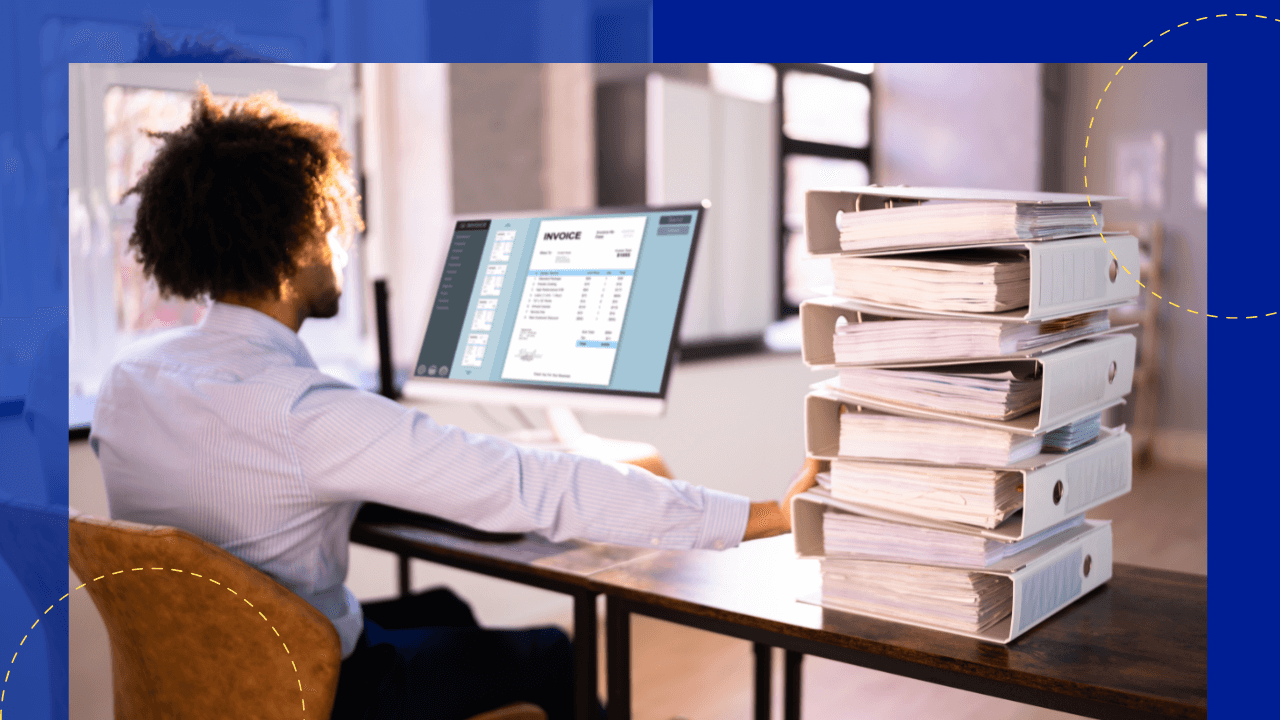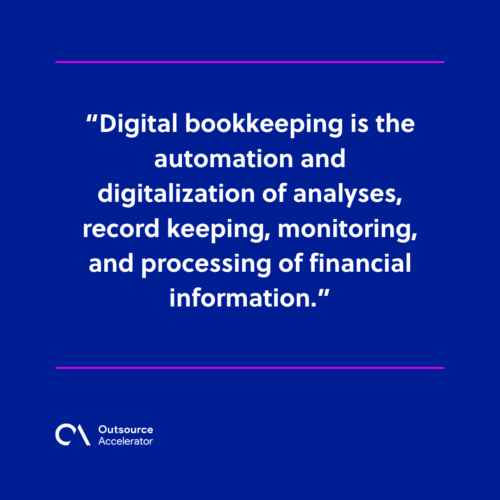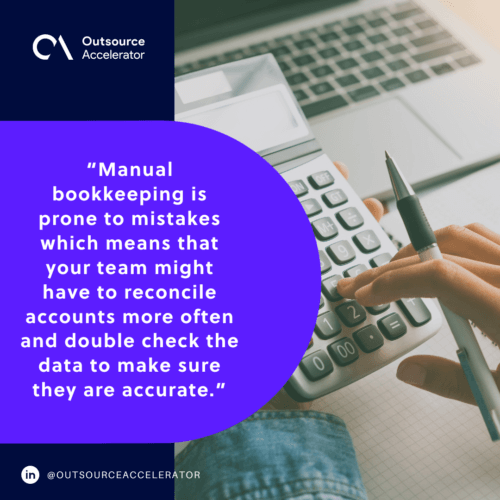6 advantages of digital bookkeeping

This article is a submission by D&V Philippines. D&V Philippines has years of experience in the accounting and finance industry. This third-party services company can generate the financial reports you need to make real-time financial decisions.
Bookkeeping is an important process that makes sure your accounting books are updated and mistakes-free. Employees tasked to do bookkeeping will process several transactions and input numerous financial data.
However, traditional bookkeeping comes with problems you should be aware of. This is why companies switch to digital bookkeeping.
What is digital bookkeeping?
Digital bookkeeping is the automation and digitalization of analyses, record keeping, monitoring, and processing of financial information.
It utilizes artificial intelligence, software, and tools for processing and improving accounting and bookkeeping tasks. Digitalization simplifies work and eliminates mistakes when you update your books.
Digital bookkeeping allows companies to save time and resources while improving efficiency.

Digital bookkeeping vs. Manual bookkeeping
Manual bookkeeping comes with challenges that might prevent companies from reaching optimum efficiency.
Manual bookkeeping is a costly practice
Manual data entry and bookkeeping are costly mistakes businesses should avoid. It’s costly — since it requires more in-house employee, trainings, and certifications.
Manual bookkeeping overlooks important transactions
Long work hours, repetitive work, and fatigue might lead to overlooking important details and transactions when bookkeeping. These mistakes can distort your company’s financial position.
Missed transactions might incur penalties because of noncompliance. One of the advantages of digital bookkeeping is that it enables you to automate some of your team’s tasks.
They can oversee the automation process to make minor improvements or make sure all the transactions are processed properly.
Inaccurate computations
Manual bookkeeping can result in inaccurate calculations in financial statements. An inexperienced, tired, and/or overworked employee can miss computations or input the wrong numbers.
This mistake can have a negative effect on your gross sales and profits, accounts payable, expenses, and others. It also distorts your financial position and situation which might result in wrong strategic decisions.
It’s important to keep your data precise because you’ll need it to allocate your budget, identify business and operational costs, and determine the profitability of your company.
One of the advantages of digital bookkeeping is that it enables you to categorize data and rectify mistakes quickly. The accounting software you choose can simplify tasks such as data collection and categorization.
It can also assist you team in identifying mistakes in your books.
Delayed updates of financial information
Manual bookkeeping is prone to mistakes which means that your team might have to reconcile accounts more often and double check the data to make sure they are accurate.
Delays in updating your accounting books and financial information can prevent you from making real-time decisions. Failure to make real-time decisions might lead to missed growth opportunities for your company.
These are just some of the challenges your team might encounter when they still do manual bookkeeping and data entry. The advantages of digital bookkeeping have enticed many companies to switch to automation and cloud-based platforms.
They have experienced the benefits and boost in efficiency that it provides.

What are the advantages of digital bookkeeping?
The advantages of digital bookkeeping are far reaching and have a positive effect on the accounting processes of companies, here are some noteworthy benefits:
1. Organized financial information
If you have a lot of data about all your transactions, you might have a difficult time going through all of them once the need arises.
Using a digital tool and platform allows you to organize the data you already have and need to collect. Upload the financial information to a cloud-based platform and categorize your data based on date, transaction type, name, and others.
Whenever you need to pull out information, all you need to do is search for it or click on the category.
2. Reduced mistakes
As discussed above, manual bookkeeping comes with a lot of challenges. It is prone to human error. These mistakes can accumulate and become costly over time.
Digitalization makes it easier and more convenient to monitor transactions and the financial data your team processes. This enables them to trace mistakes and correct them immediately before your company incurs penalties, fines, or lead to higher expenses.
3. Save time and effort
Doing tasks manually is time consuming and requires more effort. When you digitalize some aspects of your accounting and bookkeeping tasks, you’re able to save time and allow your accounting team to learn new skills and hone current ones.
You can automate some administrative work such as data entry and collection, categorizing transactions, and scheduling the release of some invoices just to name a few.
4. Simplify auditing
You might need to conduct an audit. Digitalization makes it simpler to identify mistakes, update financial data, and reconcile your accounts.
You can review all your transactions at your team’s convenience to make sure you comply with local tax policies and regulations.
5. Improve tax compliance
Failure to comply with tax regulations lead to penalties, fines, and creates a negative image of your company. Digitalization makes sure your accounting books and data are accurate down to the last centavo.
It’s easier to determine errors or fraudulent transactions that might occur. Your team of accountants can make quicker decisions because part of their work has already been automated and they worry less about compliance.

6. Better data quality
Data can provide you with a competitive advantage. However, you need to collect and analyze quality data to get the insights you need.
Digital tools make it more convenient to process groups of data and identify which sets are beneficial to your company. You can organize the data and compare them before analyzing. It enables you to determine trends which you can leverage.
There are more advantages of digital bookkeeping. Start the digitalization of your accounting processes to boost efficiency, reduce the workload of your accountants, and gain an edge over your competitors.
If you’re looking to switch to digital bookkeeping, consider D&V Philippines. They offer a gamut of services covering CFO services, tax compliance, business analytics, and management accounting, among others.







 Independent
Independent




